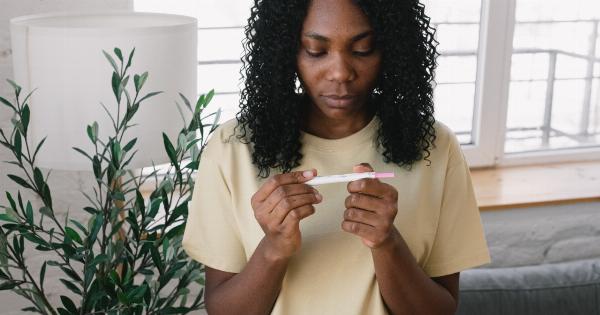During pregnancy, many women experience a range of physical changes with the body preparing itself for childbirth. One common concern among pregnant women is vaginal bleeding after sex.
Although it can be quite alarming, is it normal to experience bleeding after sex during pregnancy?.
What Causes Bleeding after Sex during Pregnancy?
Bleeding after sex (also known as postcoital bleeding) can occur at any time during pregnancy. In most cases, it is nothing to be worried about.
It is usually caused due to minor reasons such as the cervix becoming sensitive or inflamed due to the elevated hormone levels, blood flow increases to the cervix, and becomes more susceptible to bleeding. It could also cause due to vaginal dryness during pregnancy, which can cause irritation and tearing of the vaginal wall and bleeding after sex.
In rare cases, bleeding could indicate something more serious like miscarriage or placenta previa, which requires immediate attention from a doctor.
Is Bleeding after Sex Normal during the First Trimester?
Bleeding after sex is common in the first trimester during pregnancy and may be due to various reasons such as increased blood flow to the uterus or increased sensitivity of the cervix.
However, if bleeding becomes heavy, consistent, or accompanied by cramping or pain, it is essential to seek medical advice to ensure there are no underlying concerns.
Should You Worry About Bleeding after Sex during the Second Trimester?
Bleeding after sex during the second trimester of pregnancy can still occur due to the same reasons as the first trimester. However, this is not as common as during the first trimester.
If bleeding becomes heavy and continues or is associated with other symptoms such as cramps, pelvic pain, or fever, immediate medical attention is necessary to prevent any complications.
What about Bleeding after Sex during the Third Trimester?
Bleeding after sex is also possible in the third trimester, but it could indicate a potential complication.
With the fetus fully developed, the risk of a miscarriage is minimal, but the woman faces other risks such as preterm labor, vaginal infections, or vaginal tears. It is essential to seek medical advice immediately, even if it seems like mild bleeding after sex since it can make a significant difference in preventing complications.
What to Do if You Experience Bleeding after Sex during Pregnancy?
Bleeding after sex is a typical occurrence during pregnancy, but it is better to err on the side of caution. Firstly, it is essential to stay calm and understand that it is relatively common.
Unless it is heavy and continuous, it is not usually an alarming situation. Contact your healthcare provider and explain the situation to seek their advice and recommendations, if necessary.
Precautions you can Take
Although vaginal bleeding after sex may occur for reasons beyond our control, some precautions can be considered to reduce the chances of experiencing it:.
- Keep the vagina lubricated to reduce the chances of dryness and tearing leading to bleeding.
- Engage in gentle and cautious sexual intercourse to minimize stress to the cervix.
- Use soft lubricating condoms that can reduce vaginal rubbing and decrease the risk of bleeding.
- Continue routine prenatal care to ensure the health and progress of the pregnancy is stable.
Conclusion
Although bleeding after sex is not always a serious sign during pregnancy, it is essential to keep an eye on its intensity and consistency to detect any underlying causes.
Contact your healthcare provider should any concerns arise, and you can be sure that they will do everything possible to prevent any complications. In summary, bleeding after sex is relatively normal and usually not serious, but it is important to maintain regular prenatal care and discuss any concerns with your healthcare provider.




















